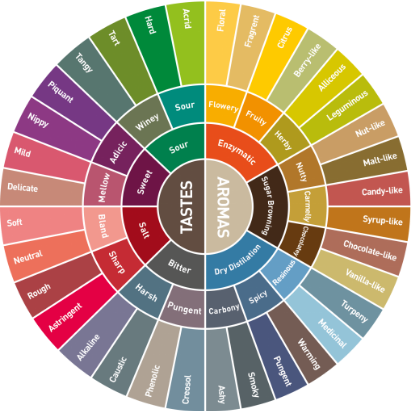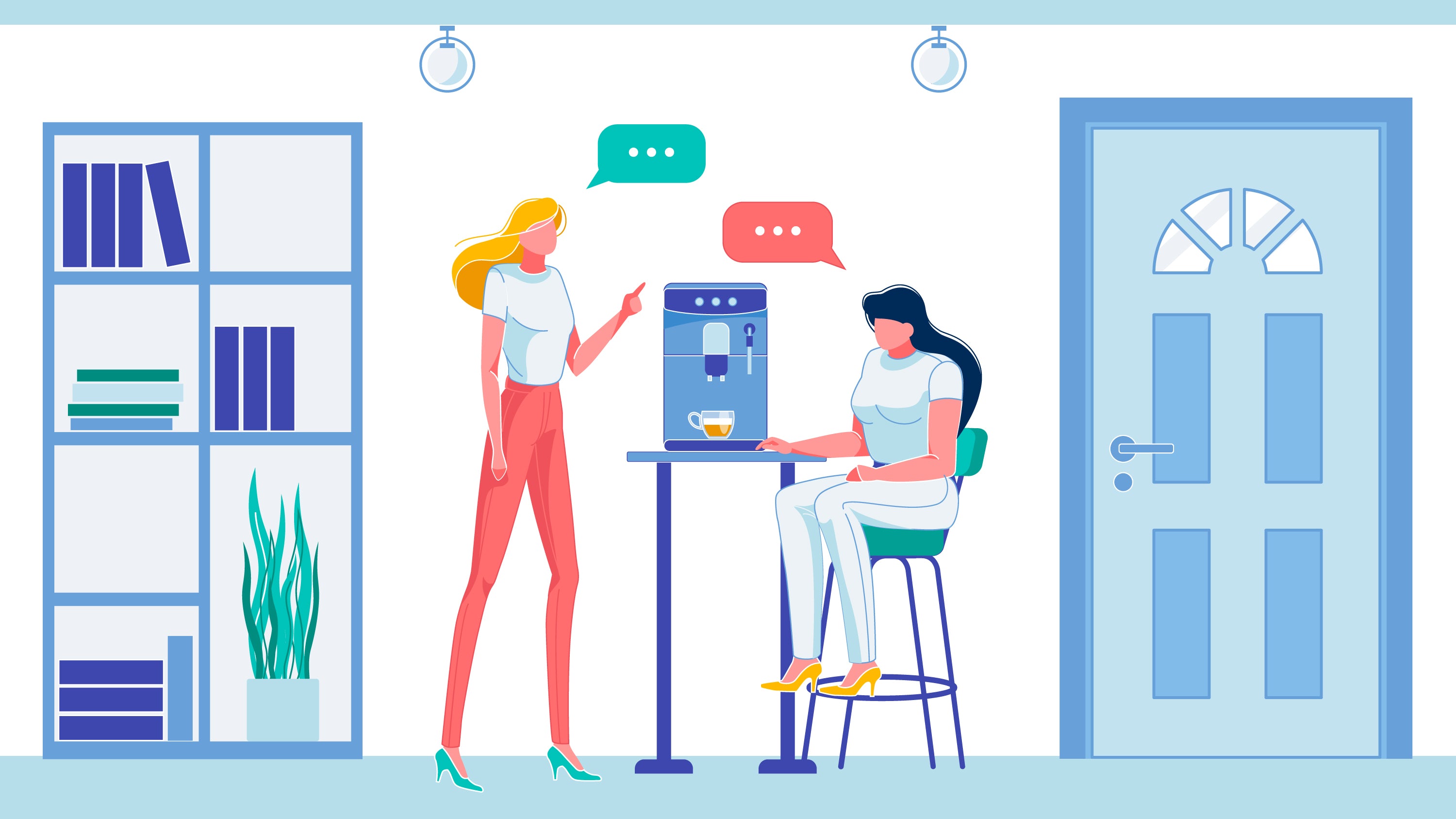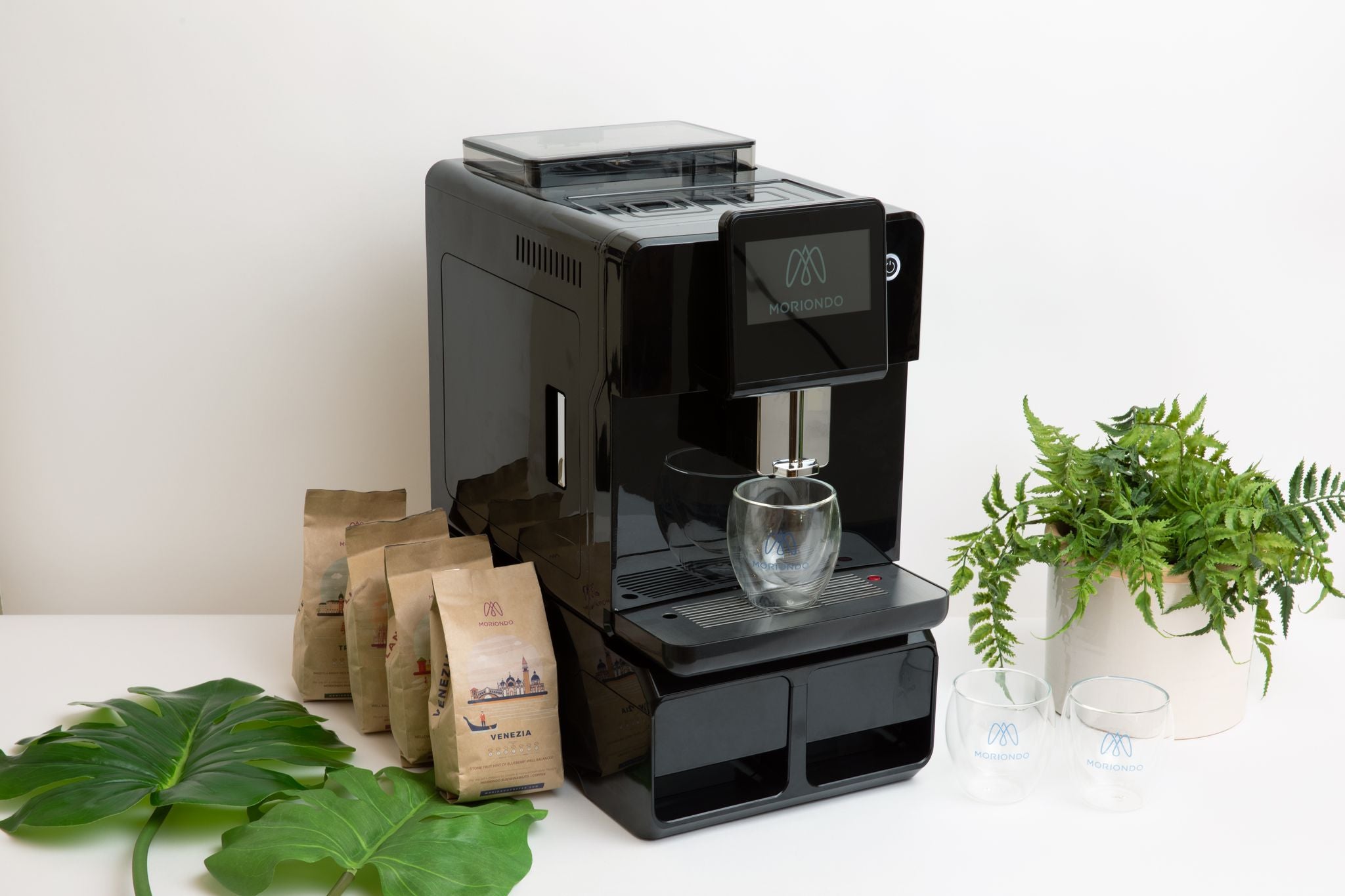Adaptability in the Workplace: Why it's Crucial for Career Success
Are you looking to boost your career success? One important trait that can help you achieve this is adaptability. In today's fast-paced professional environment, those who are able to adjust and thrive in constantly changing situations are highly valued by employers. But what exactly does it mean to be adaptable in the workplace? And how can you develop these skills? In this blog post, we'll explore the benefits of being adaptable, the top skills to cultivate for adaptability, and real-life examples of adaptability in action. So let's dive into why being adaptable is crucial for your career success!
Understanding Adaptability in Professional Setting

Understanding adaptability in the professional setting means being able to adjust and thrive amidst changing circumstances. It involves having a flexible mindset, being open to new ideas, and possessing a variety of skills that enable you to navigate through different situations.
In today's fast-paced business world, companies are constantly evolving. Whether it's due to changes in technology, market trends or customer needs, organisations need employees who can adapt quickly and effectively.
Adaptability is not only about coping with change but also embracing it as an opportunity for growth. Rather than fearing change or resisting it altogether, adaptable individuals see change as an opportunity for innovation and progress.
Being adaptable requires good communication skills too since clear communication is essential when working with teams on projects where adaptation may be required along the way.
Understanding the importance of adaptability in the workplace reinforces how much this trait could contribute significantly towards career success.
Benefits of Being Adaptable in the Workplace

Being adaptable in the workplace is crucial for career success. When you are flexible and can adjust to changes, you become a valuable asset to your team and employer. One of the biggest benefits of being adaptable is that it allows you to tackle challenges with ease. Instead of feeling overwhelmed by new situations or projects, you can quickly assess what needs to be done and create a plan of action.
Moreover, adaptability also helps improve communication skills as it requires effective collaboration and teamwork among colleagues from diverse backgrounds. This skill set enables one to work well with others despite different working styles or personalities.
Another benefit of adaptability is its ability to foster creativity. Being open-minded about new ideas encourages individuals to think outside the box, which leads them towards innovative solutions that they may not have considered otherwise.
Developing resilience is another key benefit of being adaptable in the workplace since change often comes with uncertainty and ambiguity. With an adaptive mindset, professionals can handle setbacks more effectively without losing sight of their goals.
Critical thinking skills are honed through adaptation because this process involves evaluating information while considering multiple perspectives before making informed decisions based on realistic circumstances rather than hypothetical ones.
Top 5 Adaptability Skills to Develop
Adaptability is a critical skill that every professional must possess in today's ever-changing work landscape. As we face unpredictable challenges and shifting priorities, the ability to adapt and adjust quickly can make all the difference in career success.
So, what are the top 5 adaptability skills that you should develop? Here they are:
Flexibility: Being flexible means being open-minded and willing to change course when necessary. It involves being able to pivot your approach or strategy on short notice without losing sight of your end goal.
Creativity: Creativity is not just about artistic flair - it's about finding innovative solutions to problems or situations. By thinking outside of the box, you can come up with fresh ideas and approaches that may lead to new opportunities for growth.
Resilience: Resilience is about bouncing back from setbacks or failures. It involves having a positive attitude even when things don't go as planned and learning from mistakes instead of dwelling on them.
Critical Thinking: Critical thinking involves analyzing situations carefully before making decisions. It requires considering different perspectives, evaluating evidence objectively, and weighing potential outcomes before taking action.
Emotional Intelligence: Emotional intelligence refers to our ability to understand our own emotions as well as those of others. By developing emotional intelligence, we can better navigate interpersonal relationships at work and respond effectively in challenging situations.
Developing these five adaptability skills takes time and effort but doing so will help you succeed both personally and professionally by improving your problem-solving abilities, decision-making skills while also increasing resilience during trying times!
Flexibility
Flexibility is one of the most critical adaptability skills that you can possess in the workplace. It refers to your ability to adjust and modify your approach when necessary, without losing focus on your goals or objectives.
Being flexible means being able to change direction quickly when faced with unforeseen obstacles or challenges. This skill requires a certain level of open-mindedness and a willingness to accept new ideas, feedback, or criticism.
Having flexibility at work also allows you to be more agile in your role. You’ll be better equipped to handle changes in priorities, shifting deadlines, and last-minute requests from clients or managers.
Moreover, by practicing flexibility regularly, it can help improve communication between team members as well as increase collaboration within teams. Adapting quickly helps others have confidence in the decisions made around them while making sure things are moving forward efficiently.
Enhancing one's flexibility will not happen overnight; rather it will take time and practice consistently over time for this trait to become second nature at work. Nonetheless learning how important flexibility is towards professional success should encourage individuals willing enough who want their careers growth further than what they've experienced so far!
Creativity
Creativity is a skill that allows individuals to think outside the box and come up with new ideas or solutions for any given problem. It's not just limited to people in the arts, but it's essential in every workplace. Creative employees are more likely to generate innovative ideas, which can lead to increased productivity and revenue for businesses.
One way to develop creativity is by challenging oneself regularly. Taking on tasks or projects that push an individual out of their comfort zone can stimulate creative thinking and improve their ability to adapt quickly.
Another way is through brainstorming with colleagues or seeking feedback from others. Brainstorming sessions allow everyone involved to share their thoughts freely without judgment while receiving constructive criticism helps identify areas of one's work that need improvement.
Moreover, embracing failure as a learning opportunity rather than fearing it could also help enhance creativity skills. Failure can inspire fresh perspectives and encourage individuals' growth mindset, leading them towards inventiveness.
Developing creativity skills requires practice and perseverance coupled with an open mind towards trying new things and exploring different ways of doing things.
Resilience
Resilience is a crucial skill to have in the workplace, especially during challenging times. It's the ability to bounce back from setbacks and keep pushing forward. Resilient individuals are able to adapt quickly to change and find solutions to problems that arise.
To develop resilience, it's important to cultivate a positive mindset and practice self-care. This means taking time for yourself, staying organized, setting realistic goals, and seeking support when needed.
Resilience also involves being proactive in finding solutions to problems instead of just reacting negatively. This means staying calm under pressure and assessing situations objectively before making decisions.
In addition, resilient individuals are not afraid of failure or mistakes as they see them as opportunities for growth rather than setbacks. They learn from their experiences and use them as stepping stones towards success.
Resilience is an essential trait for career success as it helps you stay motivated through challenges while maintaining a positive attitude towards work. By practicing resilience skills regularly, you can become more adaptable in any situation that arises in your professional life.
Critical Thinking
Critical thinking is the ability to analyze information objectively, evaluate different perspectives, and make sound judgments based on that analysis. In today's rapidly changing business environment, critical thinking skills are more important than ever before.
A key aspect of critical thinking is having an open mind and being willing to consider alternative viewpoints. This means setting aside personal biases or preconceived notions and looking at the facts objectively. It also involves questioning assumptions, asking probing questions, and seeking out additional information when necessary.
Another crucial component of critical thinking is the ability to identify patterns and connections between seemingly unrelated pieces of information. This requires a certain degree of creativity as well as analytical skills.
One way to develop your critical thinking abilities is by practicing active listening - paying close attention to what others are saying without interrupting or jumping to conclusions too quickly. Another strategy is using logic models or flow charts to visualize complex problems and identify potential solutions.
Honing your critical thinking skills can help you become a more effective problem solver in any professional setting. Whether you're working on a team project or tackling a difficult challenge individually, approaching tasks with an objective mindset will set you up for success in your career endeavors.
Emotional Intelligence
Emotional intelligence is the ability to identify and manage one's own emotions, as well as the emotions of others. In other words, it's being able to understand and regulate your feelings while also empathizing with those around you.
Having emotional intelligence in the workplace can be incredibly beneficial for career success. It allows individuals to communicate effectively, build strong relationships with colleagues and clients, and navigate conflicts in a healthy manner.
One key aspect of emotional intelligence is self-awareness. This means having a deep understanding of your own emotions, strengths and weaknesses, values and beliefs. By being aware of these things about yourself, you can better understand how they may impact your interactions with others.
Another important component is empathy - the ability to put oneself in someone else's shoes emotionally. This skill enables individuals to connect more deeply with their coworkers by understanding their perspectives on projects or issues at hand.
Effective communication is another critical element of emotional intelligence that contributes towards productivity in teams or departments within an organization; it involves active listening techniques such as paraphrasing what has been said aloud before responding so there are no misunderstandings between everyone involved.
Developing emotional intelligence skills takes time but can bring immense benefits both personally and professionally when applied mindfully over time!
How to Improve Your Adaptability Skills

If you are looking to improve your adaptability skills, there are several things that you can do. One of the most important is to be open-minded and willing to try new things. This means being flexible when it comes to changes in the workplace, whether they involve tasks or processes.
Another way to improve your adaptability skills is by staying up-to-date with industry trends and developments. This can involve reading industry publications, attending conferences or workshops, and networking with colleagues.
It's also important to be proactive about developing new skills that will help you be more adaptable. This could mean taking courses or training programs in areas such as critical thinking, communication, problem-solving, or emotional intelligence.
Don't underestimate the power of practice when it comes to improving your adaptability skills. Look for opportunities within your current role where you can stretch yourself outside of your comfort zone and challenge yourself to try something new.
By embracing these strategies for improving adaptability in the workplace, you'll not only become a more valuable employee but also position yourself for long-term career success.
Real-life Examples of Adaptability in Action In the Workplace
Adaptability in the workplace is not just a buzzword, it's a crucial skill that every employee should possess to thrive in their career. Being adaptable can help you navigate through difficult situations, collaborate better with your team, and increase your chances of success.
In this article, we have seen how understanding adaptability in professional settings can benefit your career. We also discussed the top five adaptability skills that will help you develop resilience and emotional intelligence at work.
We explored some real-life examples of individuals who demonstrated exceptional adaptability skills in their workplaces. These examples show us that being adaptable doesn't just mean accepting change but being proactive and creative when dealing with challenges.
Remember that adaptability is a continuous journey and requires consistent practice and improvement. By developing these skills, you'll be well-equipped for whatever changes come your way in the workplace.
1. A manager who adjusted their communication style to build stronger relationships with colleagues
2. An employee who quickly adapted to the new system when the company switched to a remote setup
3. A team leader who took initiative and organized virtual meetings for their team members
4. An individual who created innovative solutions when faced with an unexpected challenge at work
5. A professional who quickly developed a new skill set to support a team's current project
From adapting to new technologies and processes, to handling unexpected challenges and changes in the workplace, adaptability is a crucial skill for career success. Being adaptable allows you to navigate through any situation with ease while remaining productive and motivated.
To improve your adaptability skills, focus on developing flexibility, creativity, resilience, critical thinking and emotional intelligence. By incorporating these skills into your work routine and mindset, you can become an asset to any team or organization.
Real-life examples of adaptability in action show us that this skill is not only beneficial but necessary in the ever-changing landscape of modern workplaces. Whether it's learning a new software program overnight or pivoting business strategies during uncertain times - those who possess strong adaptive abilities are more likely to thrive professionally than those who don't.
So take time to assess your own adaptability skills today. Identify areas where you can improve upon them and start taking steps towards becoming a more versatile employee. With effort and practice, you'll find yourself better equipped for whatever challenges come your way at work - ultimately leading you towards greater career success!
Good Tasting Coffee: How to Identify Coffee Flavors

In order to appreciate the different types of coffee available, it's important to cultivate an awareness of its unique characteristics. Let's take a look at the way coffee connoisseurs judge different cups of coffee.

Aroma
The scent of a cup of coffee has a direct influence on how we perceive its flavor. As you drink coffee try to notice if the scent is smoky, fruity, earthy, spicy, nutty or grassy.
Acidity
One of the most defining characteristics of a cup of coffee is its acidity. This is the sharp, bright tangy quality of coffee that perks up our senses. Coffee doesn’t necessarily contain just one type of acid, either. It may contain citric acid, malic acid (fruity in flavor) or even quinic acid from stale coffee, which gives us stomach aches.
Body
This is the weight, thickness and texture of coffee in your mouth. The body of different types of coffee falls on a spectrum of light- to full-bodied viscosity (thin to thick).
Flavor
This is where comparisons come in handy and there is some overlap between aroma and flavor. Your coffee might taste bitter, sweet, savory or sour with common comparisons to chocolate, wine or fruit.
Related Posts
















